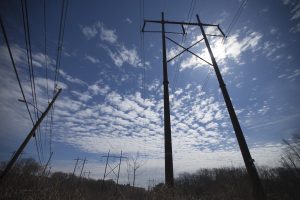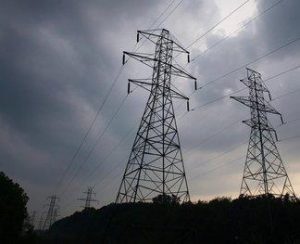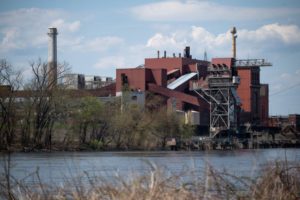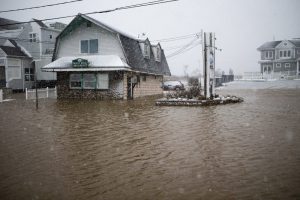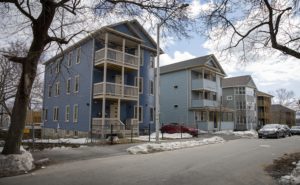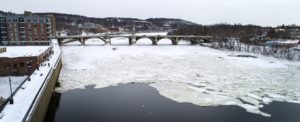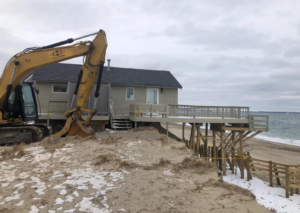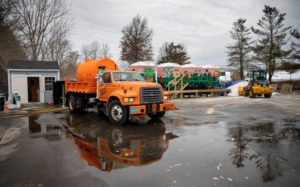Stories
President Joe Biden is inviting world leaders to join him later this week for a virtual climate summit, where the president is expected to announce a new, lower target for U.S. greenhouse gas emissions. The reduction is seen as essential for slowing climate change. Biden has also pledged to adopt new regulations for fossil fuel…
Read MorePresident Joe Biden’s $2 trillion infrastructure proposal seeks to help reach the administration’s ambitious clean energy goals for the U.S. over the next decade. Part of that means funding upgrades to the country’s electric transmission system — the poles and wires that everyone relies on to access power nearby or from hundreds of miles away.…
Read MoreThat recycling you put out each week in the blue bin may not be going where you think it is. Because of contamination in curbside bins, the city of Hartford is now redirecting most of its recycling to a nearby incinerator, which means tons and tons of recyclable materials are going to waste while the…
Read More‘It’s My Future’: A New Generation Of Young Climate Activists Takes The Helm In New Hampshire
By the time today’s teenagers turn 50, New England’s climate will feel very different. Under current warming trends, states like New Hampshire will have shorter winters with less snow. Some coastal areas will be underwater. And it will all be worse without swift action to stop fossil fuel emissions. This possible future is calling more…
Read MoreShelter From the Climate Storm? Experts Say Vermont Needs To Prepare For ‘Climigration’
As the planet warms, many areas around the world may become uninhabitable. On the east coast of the United States, especially in population centers like Boston and New York, rising sea levels and increased coastal flooding are likely to force people to move inland to places that are higher, drier and relatively affordable – places…
Read MoreStanding in front of her three-level house in Somerville, Lena Sheehan looks down at the construction of a new high school and transportation hub just a block away. “I can’t get over it, I haven’t been here in so long,” she says. “This is the new T — isn’t that brilliant, right beside the house.”…
Read MoreMapping Project Explores Links Between Historic Redlining And Future Climate Vulnerability
The rain started just before Mother’s Day, in 2006. It fell for days over the Merrimack Valley, causing the worst flooding in decades. Water reached to rooftops. Pipes burst in Haverhill, pouring millions of gallons of sewage into the rising Merrimack River. Streets flooded, highways closed, thousands of people evacuated their homes. Andy Vargas was…
Read MoreCatastrophic damage from climate change threatens coastal homes all over the Cape, and Islands, prompting regional planners to eye managed coastal retreat options Whenever a beachfront home goes on the market in Sandwich, it’s going to draw dozens of prospective buyers. “So this is all private beach, which people just love. They want their privacy.…
Read MoreA three-story-tall gate creaks open, and reveals a warehouse filled to the brim with brown crystals. It’s a mountain of rock salt. “We filled this shed this past week,” says T.J. Shea, Cambridge’s superintendent of streets. Shea is what some might call a “snow fighter.” It’s his job to keep roads dry all winter using this…
Read MoreAs Farmers Plant Cover Crops To Reduce Runoff, Report Says They Also Use More Herbicides
A new report by a retired state scientist shows the apparent unintended consequence of the successful push by dairy farmers to reduce nutrient runoff into Lake Champlain. Farmers reduce runoff by planting their corn fields with cover crops, which they then kill annually with herbicides. The report documents an increase in herbicides applied on the…
Read More
